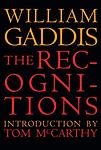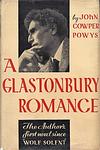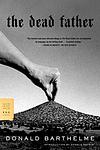The Greatest "Allegorical, Experimental" Books of All Time
Click to learn how this list is calculated.
This list represents a comprehensive and trusted collection of the greatest books. Developed through a specialized algorithm, it brings together 300 'best of' book lists to form a definitive guide to the world's most acclaimed books. For those interested in how these books are chosen, additional details can be found on the rankings page.
Genres
Allegorical books are a genre of literature that use symbolic characters, events, and settings to convey a deeper meaning or message. These stories often have a moral or philosophical lesson that is meant to be interpreted by the reader. Allegories can be found in many different types of literature, including novels, short stories, and poetry. They are a powerful tool for exploring complex ideas and emotions, and can be used to comment on social, political, or religious issues. Overall, allegorical books are a thought-provoking and engaging genre that challenges readers to think critically and reflect on the world around them.
The "Experimental" category of books is characterized by works that challenge traditional literary conventions and push the boundaries of form and content. These books often incorporate unconventional narrative structures, language, and themes, and may experiment with different mediums such as poetry, visual art, or multimedia. The goal of experimental literature is to create new and innovative ways of storytelling that challenge readers' expectations and expand the possibilities of what literature can be.
Countries
Date Range
Reading Statistics
Click the button below to see how many of these books you've read!
Download
If you're interested in downloading this list as a CSV file for use in a spreadsheet application, you can easily do so by clicking the button below. Please note that to ensure a manageable file size and faster download, the CSV will include details for only the first 500 books.
Download-
1. Waiting for Godot by Samuel Beckett
"Waiting for Godot" is a play that explores themes of existentialism, despair, and the human condition through the story of two characters, Vladimir and Estragon, who wait endlessly for a man named Godot, who never arrives. While they wait, they engage in a variety of discussions and encounter three other characters. The play is characterized by its minimalistic setting and lack of a traditional plot, leaving much to interpretation.
-
2. Orlando: A Biography by Virginia Woolf
The novel follows the life of a young nobleman in Elizabethan England who inexplicably transforms into a woman at the age of 30 and lives on for three centuries without aging. Throughout the centuries, the protagonist experiences various historical events, engages in relationships with both men and women, and explores the complexities of gender identity and sexuality. The book is an exploration of the fluidity of gender and time, as well as a critique of societal norms and expectations.
-
3. Franz Kafka: The Complete Stories by Franz Kafka
This collection of stories offers a comprehensive look at the work of a renowned author, known for his surreal and often unsettling depictions of modern life. The stories explore themes of existential anxiety, guilt, and absurdity, often through narratives in which ordinary people face extraordinary, inexplicable circumstances. The collection showcases the author's unique style and his profound influence on 20th-century literature.
-
4. Gravity's Rainbow by Thomas Pynchon
Set during the end of World War II, the novel follows Tyrone Slothrop, a lieutenant in the U.S. Army, as he tries to uncover the truth behind a mysterious device, the "Schwarzgerät", that the Germans are using in their V-2 rockets. The narrative is complex and multi-layered, filled with a vast array of characters and subplots, all connected by various themes such as paranoia, technology, and the destructive nature of war. The book is known for its encyclopedic nature and its challenging, postmodernist style.
-
5. Molloy by Samuel Beckett
"Molloy" is a complex and enigmatic novel that follows the journey of its eponymous character, an elderly, disabled vagabond, who is tasked with finding and killing a certain person. The narrative is split into two parts: the first is told from Molloy's perspective as he navigates his way through a strange and often hostile world, while the second follows a detective named Moran who is assigned to find Molloy. The novel is renowned for its challenging narrative structure, its bleak and absurdist humor, and its profound exploration of themes such as identity, existence, and the human condition.
-
6. If on a Winter's Night a Traveller by Italo Calvino
The novel is a postmodernist narrative that follows the adventures of the reader, who is trying to read a book called "If on a Winter's Night a Traveller." However, the reader keeps encountering obstacles that prevent him from finishing the book, including printer's errors, censorship, and interruptions from other characters. The story is interspersed with the beginnings of ten different novels, each interrupted at a moment of suspense. The book is a meditation on reading, writing, and the nature of narrative itself.
-
7. Thus Spake Zarathustra by Friedrich Nietzsche
This philosophical novel explores the idea of the Übermensch, or "Overman," a superior human being who has achieved self-mastery and created personal meaning in life. The protagonist, Zarathustra, descends from his solitary life in the mountains to share his wisdom with humanity. Through a series of speeches and encounters, he challenges traditional beliefs about good, evil, truth, and religion, and advocates for the transcendence of man into a higher form of existence. The book is noted for its critique of morality, its poetic and often cryptic language, and its exploration of complex philosophical concepts.
-
8. Finnegans Wake by James Joyce
This complex and challenging novel is renowned for its experimental style and intricate, dreamlike narrative. It explores the story of a publican in Dublin, his wife, and their three children, but the plot is not linear and often veers into surreal and abstract territory. The book is dense with linguistic games, puns, and allusions to a myriad of cultural, historical, and mythological sources. The narrative is circular, ending in the middle of a sentence that is completed at the start of the book, embodying the cyclical nature of life and history.
-
9. Death of Virgil by Hermann Broch
The novel explores the final hours of the Roman poet Virgil, who, while on his deathbed, contemplates the value and impact of his life's work, particularly his unfinished epic, the Aeneid. The narrative is a complex, stream-of-consciousness meditation on art, life, and death, with Virgil wrestling with his desire to burn his epic and the emperor's command to preserve it. The book delves into themes of the meaning of human existence, the role of art in society, and the clash between the individual's inner world and the external world.
-
10. The Crying of Lot 49 by Thomas Pynchon
The novel follows the journey of a woman who stumbles upon a centuries-old conflict between two mail distribution companies when she is appointed the executor of her ex-lover's will. As she delves deeper into the mystery, she begins to question her own sanity and the reality of the conspiracy itself. The story explores themes of communication, interpretation, and the struggle to find meaning in a chaotic world.
-
11. The Third Policeman by Flann O'Brien
"The Third Policeman" is a darkly comedic and surreal novel about a nameless narrator who, after committing a murder to raise funds for his scholarly obsession with a bizarre pseudo-scientific theory, finds himself wandering in an eerie, nightmarish landscape. He encounters strange characters, including a pair of eccentric policemen who are obsessed with bicycles, and becomes embroiled in a series of increasingly absurd and ludicrous situations. The novel explores themes of existence, reality, and the nature of hell, with a twist ending that forces the reader to question everything they've read.
-
12. Six Characters in Search of an Author by Luigi Pirandello
In this metatheatrical play, six characters come to life and demand that a theater director tell their tragic story, which was left incomplete by their author. As the director and his actors interact with these characters, the boundaries between fiction and reality blur, leading to a philosophical exploration of the nature of human identity, the reliability of art, and the unreliability of perception. The characters' story, involving a complex web of familial relationships, adultery, and suicide, further complicates the narrative, challenging the audience's understanding of truth and illusion.
-
13. The Recognitions by William Gaddis
The novel is a complex and lengthy examination of authenticity and forgery. It tells the story of a young man who becomes a master forger of Old Masters paintings, while exploring themes of identity, religion, and art. As the plot unfolds, the protagonist grapples with his own authenticity in a world obsessed with appearances and material success. The narrative is interspersed with philosophical and religious discussions, making it a challenging yet thought-provoking read.
-
14. Lanark by Alasdair Gray
"Lanark" is an unconventional narrative that combines elements of fantasy, dystopia, and realism. The protagonist, a man named Lanark, moves through two parallel existences. In one, he's a young man named Duncan Thaw in post-war Glasgow, struggling with his artistic ambitions and personal relationships. In the other, he's Lanark in the grim, bureaucratic city of Unthank, suffering from a mysterious skin condition and grappling with his identity and purpose. The novel explores themes of love, alienation, creativity, and the human condition, presenting a complex and thought-provoking portrait of life and society.
-
15. Petersburg by Andrei Bely
"Petersburg" is a symbolist novel set in the heart of Russia during the 1905 Revolution. It follows the story of a young man who is given the task of assassinating his own father, a high-ranking government official, by a radical political group. The narrative is a complex mix of politics, family drama, and philosophical introspection, all set against the backdrop of a city in turmoil. The novel is renowned for its vivid and poetic descriptions of the city itself, making Petersburg as much a character in the story as the people who inhabit it.
-
16. The Passion According to G.H. by Clarice Lispector
"The Passion According to G.H." is a philosophical novel that delves into the existential crisis of a wealthy Brazilian woman who, after killing a cockroach in her maid's room, experiences a profound metaphysical crisis. The narrative unfolds as a stream of consciousness that explores themes of identity, existence, and the nature of reality. The protagonist's journey forces her to confront her own humanity, the concept of nothingness, and the chaotic, interconnected nature of life. It's a profound and introspective exploration of the human condition and the meaning of existence.
-
17. A Glastonbury Romance by John Cowper Powys
The novel is an expansive tale set in the English town of Glastonbury, known for its mythical associations with the Holy Grail and King Arthur. It weaves together the lives of a vast array of characters, from industrialists to mystics, as they search for meaning and transcendence in the post-World War I era. The narrative delves into themes of spirituality, nature, and industrialization, contrasting the mystical allure of ancient legends with the stark realities of modern life. At its heart, the story is a quest for deeper understanding and connection, set against the backdrop of the town's legendary landscape and the annual pageant that reenacts its storied past.
-
18. The Unconsoled by Kazuo Ishiguro
The book follows a renowned pianist who arrives in a Central European city to give a concert. However, his time there becomes increasingly surreal and disjointed as he is pulled in different directions by the demands of the locals, his own past, and his responsibilities. The narrative explores themes of memory, time, and self-delusion, creating a dream-like atmosphere that blurs the lines between reality and illusion.
-
19. The Box Man by Kobo Abé
"The Box Man" is a surreal narrative about a man who chooses to live as a homeless individual, inside a box, in Tokyo. The protagonist, a former doctor, narrates his experiences and observations from within the box, and the narrative often blurs the line between reality and hallucination. The book is a philosophical exploration of identity, anonymity, and the nature of existence, challenging the reader's perception of what it means to be an individual in society.
-
20. The Street of Crocodiles by Bruno Schulz
"The Street of Crocodiles" is a collection of short stories set in a small town in Poland, illustrating the author's unique perspective on reality. The book portrays the narrator's father's eccentricities and his vivid, often disturbing, imagination. The stories are filled with bizarre, dreamlike imagery and metaphors, presenting a surreal and grotesque view of everyday life. The book is a profound exploration of human nature, memory, and the power of imagination.
-
21. The Dead Father by Donald Barthelme
The book is a surreal, postmodern narrative following a group of characters as they drag the physical manifestation of their dead father across a variety of landscapes. The characters grapple with their relationships to the father figure, exploring themes of authority, control, and the nature of storytelling itself. The novel is known for its experimental style, blending a range of literary techniques and genres to create a unique, fragmented narrative.
-
22. The Clay Machine-gun by Victor Pelevin
"The Clay Machine-gun" is a surreal and complex novel that explores the nature of reality and illusion. The story is set in post-Soviet Russia and follows a protagonist who has multiple identities, including a poet in 19th-century Russia, a 20th-century psychiatric patient, and a 21st-century advertising executive. The narrative moves between these identities and realities, blurring the lines between them and creating a layered and philosophical exploration of Russian society, identity, and the human psyche.
-
23. The Apes of God by Wyndham Lewis
"The Apes of God" is a satirical novel that critiques the literary and artistic scene of 1920s London. The narrative follows a naive young man from the English countryside who becomes entangled in the pretentious and superficial world of London's modernist elite. The book is known for its biting wit, complex character portrayals, and intricate plot, providing a scathing critique of the cultural and intellectual pretensions of the time.
-
24. Insatiability by Stanisław Ignacy Witkiewicz
The novel is a dystopian narrative set in a future where a new Asian empire has conquered Europe. The story follows a young Polish man who, while initially indulging in hedonistic pursuits, becomes increasingly disillusioned with the world around him. As the new empire introduces a mysterious substance known as Murti-Bing pills, which create a sense of contentment and indifference in the populace, the protagonist grapples with the loss of individuality and the erosion of human spirit in society. The narrative is a critique of totalitarian regimes and the dangers of mass conformity.
-
25. Eyeless in Gaza by Aldous Huxley
This novel follows the life of Anthony Beavis, a British intellectual, from his childhood to his mid-thirties in the 1930s. As he navigates through life, he deals with the death of his mother, the suicide of his best friend, and his own philosophical and spiritual explorations. The narrative jumps back and forth in time, reflecting Beavis's memories and current experiences. The novel explores themes of pacifism, spirituality, and personal growth, culminating in Beavis's transformation into a pacifist following a spiritual awakening.
Reading Statistics
Click the button below to see how many of these books you've read!
Download
If you're interested in downloading this list as a CSV file for use in a spreadsheet application, you can easily do so by clicking the button below. Please note that to ensure a manageable file size and faster download, the CSV will include details for only the first 500 books.
Download























